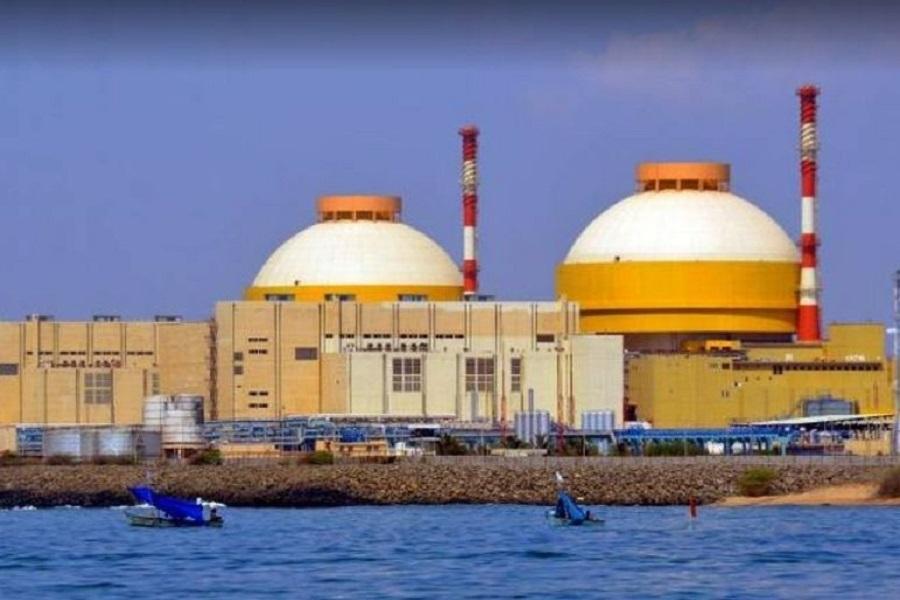
Centre Reviews 100 GW Nuclear Mission to Boost Clean Energy Goals
The Indian government has taken a significant step forward in its quest to achieve a cleaner and more sustainable energy future. Union Power Minister Manohar Lal Khattar and Minister of State for Atomic Energy, Dr Jitendra Singh, recently convened a high-level meeting to discuss the 100 GW Nuclear Energy Mission. This meeting is a follow-up on Prime Minister Narendra Modi’s ambitious target of expanding India’s clean energy basket and reaffirms the country’s commitment to achieving Net Zero emissions.
The 100 GW Nuclear Energy Mission is a crucial component of the government’s plan to reduce greenhouse gas emissions and transition to a low-carbon economy. Nuclear energy is a clean and carbon-free source of power, making it an important part of the country’s energy mix. The mission aims to increase the country’s nuclear power capacity from its current level of around 6 GW to 100 GW by 2031.
The meeting, which was attended by senior officials from the Ministry of Power, Ministry of New and Renewable Energy, and the Nuclear Power Corporation of India Limited (NPCIL), discussed key directives and strategies to achieve the 100 GW Nuclear Energy Mission. The meeting also focused on the need to accelerate the development of nuclear power projects and ensure a smooth transition to commercial operation.
In order to achieve the mission’s objectives, the government has outlined several key directives. These include:
- Expediting the construction of new nuclear power projects: The government has directed the NPCIL to expedite the construction of new nuclear power projects and ensure that they are commissioned on schedule.
- Increasing private sector participation: The government has also directed the NPCIL to encourage private sector participation in the development of nuclear power projects. This will help to bring in new technologies and expertise, and increase the country’s nuclear power capacity more quickly.
- Enhancing nuclear safety and security: The government has emphasized the importance of nuclear safety and security, and has directed the NPCIL to take all necessary steps to ensure that nuclear power plants are operated safely and securely.
- Developing indigenous nuclear technology: The government has also directed the NPCIL to develop indigenous nuclear technology and reduce the country’s dependence on foreign equipment and expertise.
The 100 GW Nuclear Energy Mission is an important step towards achieving India’s clean energy goals. Nuclear energy is a critical component of the country’s energy mix, and increasing its capacity will help to reduce greenhouse gas emissions and transition to a low-carbon economy.
India’s commitment to clean energy is evident in its Nationally Determined Contribution (NDC) under the Paris Agreement. The country has committed to reducing its greenhouse gas emissions intensity by 33-35% by 2030 compared to 2005 levels. The 100 GW Nuclear Energy Mission is an important step towards achieving this goal.
The mission is also in line with the government’s broader vision for the energy sector. The government’s vision is to create a low-carbon economy, where energy is generated from a mix of sources, including solar, wind, hydro, and nuclear power. The mission will help to achieve this vision by increasing the country’s nuclear power capacity and reducing its dependence on fossil fuels.
In conclusion, the Centre’s review of the 100 GW Nuclear Energy Mission is a significant step towards achieving India’s clean energy goals. The mission is an important part of the country’s plan to reduce greenhouse gas emissions and transition to a low-carbon economy. The government’s commitment to increasing the country’s nuclear power capacity will help to reduce the country’s dependence on fossil fuels and achieve its clean energy goals.
News Source:
https://investmentguruindia.com/newsdetail/centre-outlines-key-directives-towards-100-gw-nuclear-energy-mission307337






